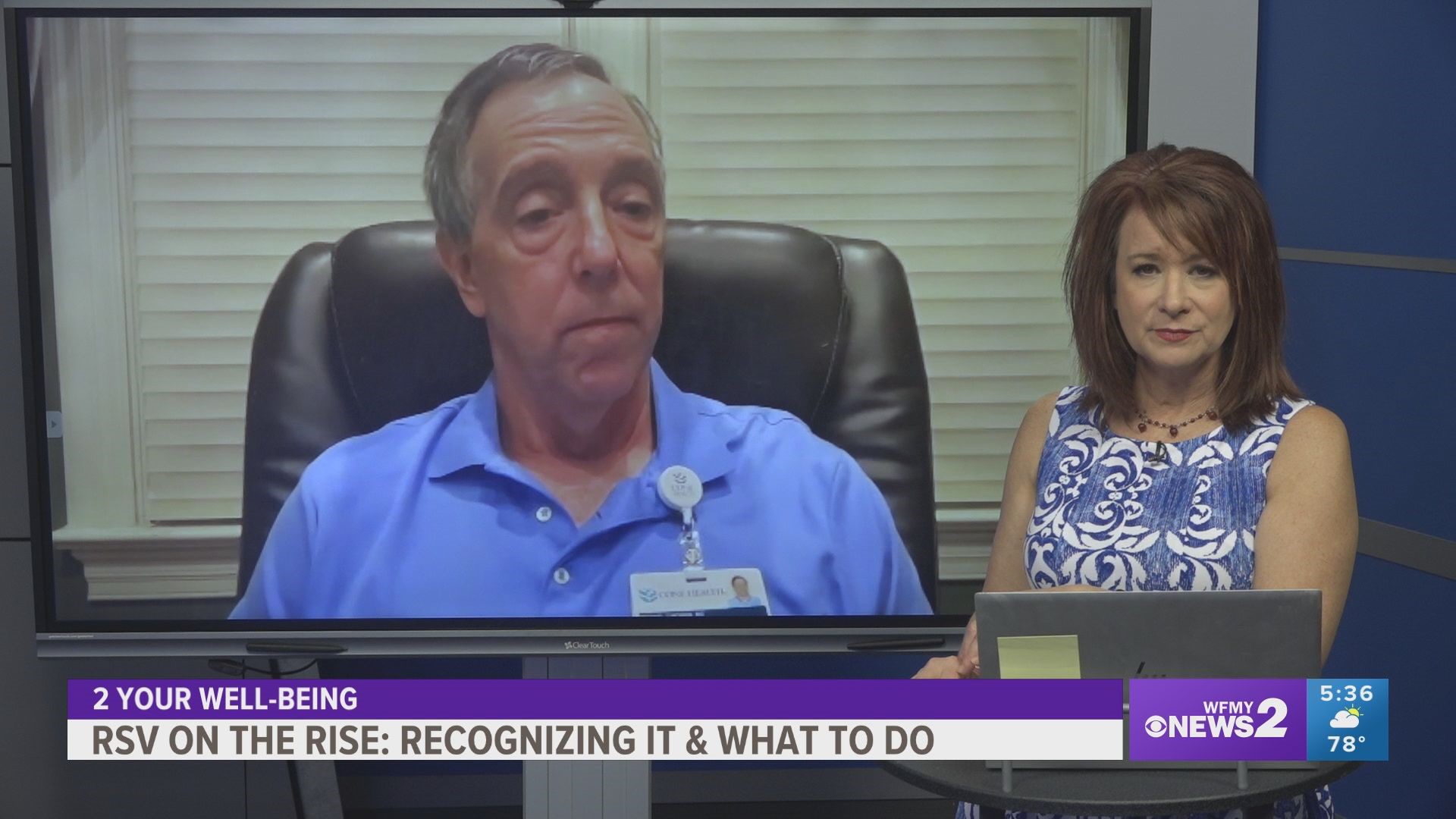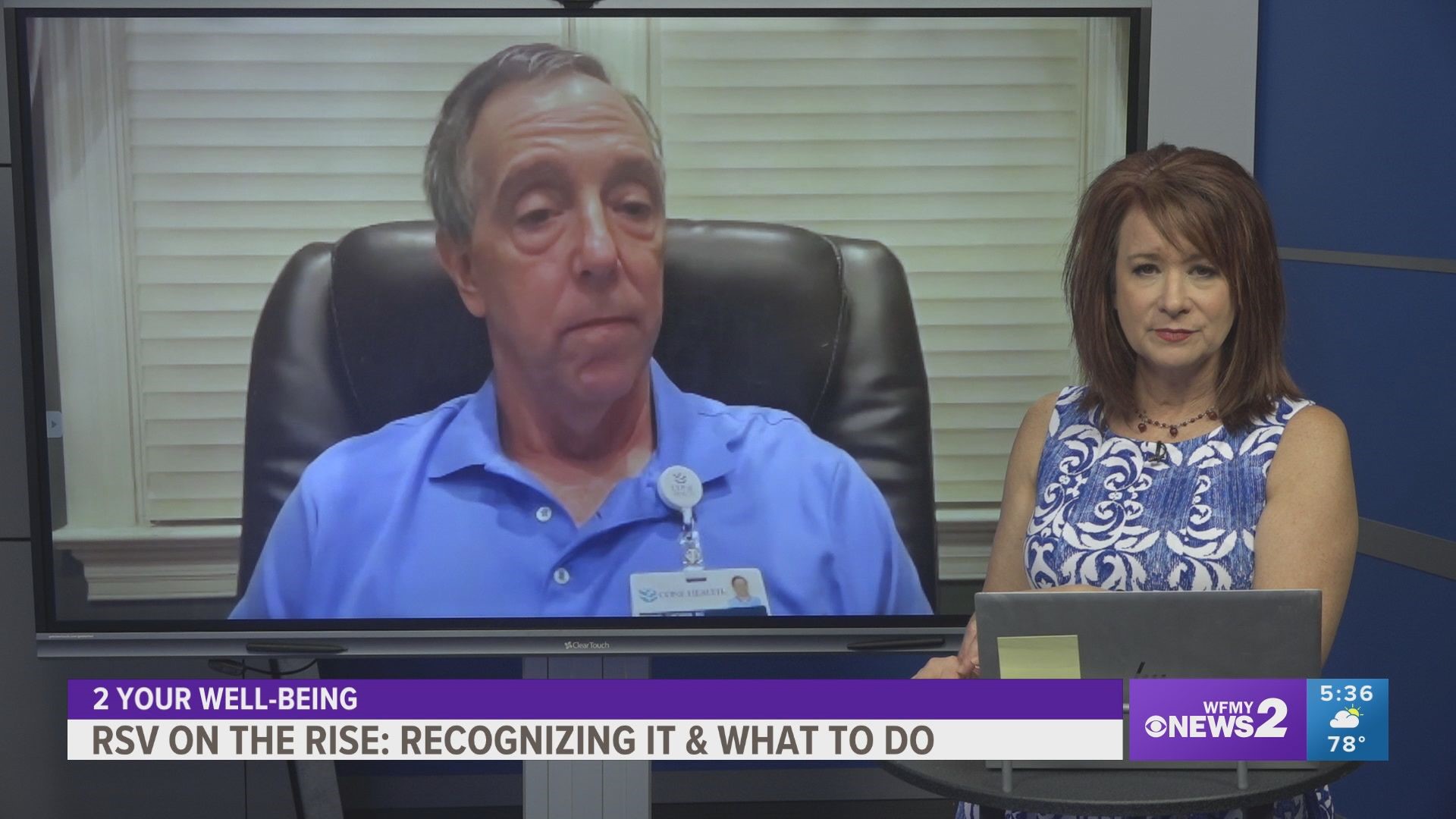GREENSBORO, N.C. — As people shed their masks as the COVID-19 pandemic improves, doctors are seeing a surge in RSV cases. The virus normally impacts children in the winter months.
We spoke with Dr. Michael Cinoman, the Medical Director of Cone Health's Pediatric Intensive Care Unit to answer common RSV questions.
What is RSV?
RSV stands for respiratory syncytial virus. It mainly impacts young children, specifically between ages 1 - 2. Cases range from mild to severe symptoms.
"Usually the smaller they are, the more severe," Dr. Cinoman said. "It causes wheezing, much like an asthma-like illness."
Dr. Cinoman said the virus can impact people of all ages. Elderly people have a chance of getting very sick. "RSV is normally a wintertime virus," he said. "We see it from the months of October-January. This time, we're seeing it in the summer because so many people were masked."
What are RSV symptoms?
Dr. Cinoman said RSV is a very common illness. He said most babies will get it.
"For most children, it's a rather benign cold," Dr. Cinoman said.
Symptoms include coughing, congestion, loss of appetite and fever. In more severe cases, babies may have difficulty breathing.
What are treatment options?
An RSV vaccine does not exist yet. Dr. Cinoman said doctors have been developing a vaccine for many years.
"Unlike COVID and Influenza and a lot of other things we have a vaccine for, it has been very challenging," Dr. Cinoman said.
There is no specific treatment for RSV. Most people who get sick will recover within one to two weeks. Doctors treat mild infections with drugs to help alleviate symptoms. In severe cases of RSV, patients may need assistance from a breathing machine.
Since most children will get it, doctors tell parents to make sure their kids wash their hands often and don't share items with sick people.


